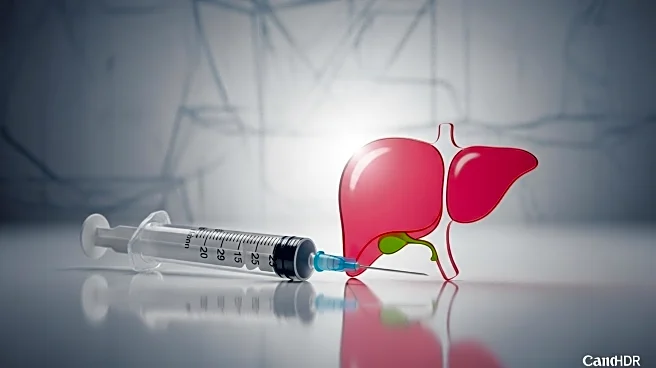What's Happening?
Eli Lilly has decided to terminate two Phase II clinical trials for naperiglipron, an investigational oral therapy aimed at treating obesity. The decision was made for 'strategic business reasons,' as noted in updates on clinicaltrials.gov. A spokesperson for Lilly confirmed the termination but did not provide further details, stating that results from the ongoing study will guide future steps for the program. The discontinued trials faced enrollment challenges, with only one participant enrolled in each. The first trial aimed to test the drug against a placebo in 150 patients with obesity and type 2 diabetes, while the second targeted adults aged 55 to 80 with a specific body mass index range. Despite these setbacks, Lilly continues with a third trial, which is open for enrollment and aims to recruit 275 participants. Naperiglipron is a GLP-1 receptor agonist, similar to other drugs in its class, promoting insulin release and appetite suppression.
Why It's Important?
The termination of these trials highlights the challenges pharmaceutical companies face in developing effective obesity treatments. Naperiglipron's discontinuation may impact Lilly's strategy in the competitive obesity drug market, where GLP-1 receptor agonists are a popular approach. The decision also reflects broader industry trends, as similar drugs from Pfizer have been discontinued due to safety concerns. Lilly's ongoing trial and its focus on diversifying its oral obesity portfolio indicate a continued commitment to finding viable solutions. The outcome of the remaining study could influence future research directions and investment in obesity treatments, affecting stakeholders in the healthcare and pharmaceutical sectors.
What's Next?
Lilly's ongoing study of naperiglipron remains crucial, with a primary completion date set for April 2026. The results will inform the company's next steps in its obesity drug program. Analysts are keen to see if Lilly can overcome past challenges associated with the drug's design scaffold, which has been problematic for other companies. The pharmaceutical industry will be watching closely, as successful outcomes could lead to new treatment options and impact market dynamics. Lilly's efforts to diversify its oral obesity portfolio may also lead to further research and development initiatives.











